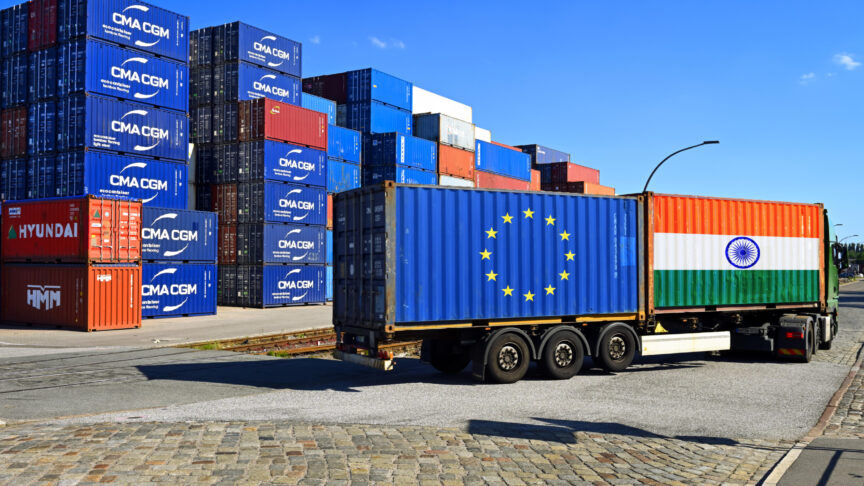Signal, constrain, and coerce: A more strategic use of sanctions
Sanctions are not a strategy by themselves, but a tool to be adapted to circumstances
It is a well-known fact that over the last few decades, the European Union has intensively resorted to sanctions. It is not just that, quantitatively, Europe has multiplied the number of its sanctions regimes, but the measures have also become more varied and targeted. About 35 sanctions regimes are currently in place. These range from asset freezes and travel bans to arms embargoes to restrictions on financial transactions – against a diversity of entities, whether individuals, non-state organisations such as terrorist groups or major powers. Sanctions have consequently gained relevance, with these “restrictive measures” (as the EU likes to call them) having played or still playing a key role in some of the EU’s biggest security policy successes (such as the nuclear deal with Iran), in its relations with major partners (Russia and China) or in some of the most nightmarish crises it faces (like Syria). But with this success, criticisms have also grown, both on the effectiveness of sanctions and on their strategic nature.
Since the ‘sanctions decade’ of the 1990s, which saw the United States, the United Nations, and the EU resort to sanctions on a much more systematic basis, the hopes for a ‘new world order’ built around collective security and non-use of force have been dashed. Yet, far from disappearing, sanctions continued to be used. They became more sophisticated too, developing from broad embargoes to targeted financial sanctions and increasingly targeting individuals rather than whole countries or entities. Still, their success is disputed. The merits of sanctions – as an adaptable tool, less heavy and costly than the use of force, possibly targeted enough to allow for the continuation of relations, and even some trade – are what led many to suspect that they have become a tool of choice by default, an easy way for Europe to react to a variety of situations (such as nuclear proliferation, conflicts, terrorism, and human rights violations) without always being strategic and serious about follow-up.
This discussion has been further heightened with continued doubts about their usefulness. Challenges have come from humanitarian, economic, or legal arguments. But the most delicate debate is about effectiveness. The fact that few sanctions regimes ever get abolished while new ones keep being added may also appear as a testimony to their inability to solve the problem they respond to. Yet, the question is often more complex than we see. In Iraq in 2003, sanctions were used and were effective at preventing Saddam Hussein from pursuing his weapons of mass destruction programmes, but the post-9/11 US demanded a degree of certainty about their effectiveness that they did not think UN inspections could ever provide. On Iran, sanctions were decried for years since they hadn’t resulted in Iran halting its nuclear programme.
Too often, people look at the discussion about the effectiveness of sanctions through the prism of how decisive an impact on state behaviour these measures have compared to their drawbacks, whether for our economies or for local populations. Research has identified the conditions – such as the size of the sanctioned country, the intensity of the bilateral relationship, preference for short-term consequences, ability to universalise the sanctions, speed and unity in adoption – which determine the impact sanctions can have.
But effectiveness is first and foremost linked to the balance between the sanctions’ three possible goals: to signal, to constrain, and to coerce. First, ‘signal’ expresses determination, i.e. it warns of possible further action, and therefore engenders deterrence, including vis-à-vis others. Second, ‘constrain’ seeks to prevent the sanctioned state or entity from pursuing its course of action, through measures from weapons embargoes to dual-use technology prohibitions to financial measures. Third, ‘coerce’ imposes costs on the sanctioned state or entity to build up leverage for negotiations. Effectiveness should always be assessed against which of these objectives are pursued.
More importantly, sanctions are not a strategy by themselves, but a tool. Their effectiveness does not only depend on whether they are tailored to the goals identified but on whether they are credible. This implies that sanctions are situated within a broader political strategy that, in some cases, can include the use force – if only through robust peace operations. Sanctions also have to be adjusted to the evolution of the situation on the ground – not just when it comes to the adoption of further sanctions or their gradual lifting, but also according to a close follow-up of their implementation and impact. The perpetuation of sanctions without any change on the ground and adjustment in the measures is usually a recipe for diminishing impact, if not for sanctions erosion: just as with any coercive policy, sanctions too need an exit strategy.
The EU and its member states need to use sanctions more strategically, and to organise themselves accordingly to make sanctions more effective. These are some areas on which Europe should focus:
- While each case requires a tailored approach, Europe should spend more time on its strategic approach to sanctions. In a striking fashion, and in spite of their growing importance, neither the EU Global Strategy, nor most member states’ defence or national security strategies, have really dug into this issue. Deep thinking on sanctions would help build consensus on how to use them, under which conditions, and to what end. It could even provide a way forward for making European sanctions more effective.
- In the Brexit debate, sanctions are rarely mentioned as an important topic. But the United Kingdom is one of the countries whose policy thinking on sanctions is most advanced, and has often been instrumental in ensuring EU sanctions have some impact. Brexit will therefore come with a number of consequences for both sides, only further underlining the fact that future UK-EU relations on security issues will not be limited to defence matters. It would certainly be suboptimal if EU-UK relations do not include a political dialogue on sanctions, and how they are designed, leveraged, implemented, and adjusted.
- In any case, Europe will benefit from better collective and national organisation on sanctions. For instance, more intelligence dedicated to sanctions, as well as specific monitoring of their impact, would be helpful when adopting and revising the regimes, as well as in terms of ensuring proper implementation.
- With the distribution of sanctions-related costs having become a growing topic of intra-EU discussions, Europe also needs to improve its management of these consequences, including further developing mechanisms designed to compensate the hardest-hit economic sectors.
Finally, Europe needs to adjust to the way in which the world has changed. The current state of transatlantic relations may end up testing both Europe’s ability to maintain strong sanctions without the US and to shield its economic activities from US sanctions not coordinated with Europe, as transatlantic differences on Russia or Iran exemplify. The rise in the use of sanctions by other powers like Russia, or regional organisations such as the African Union, further confirms the need for Europe to think about sanctions more strategically.
The European Council on Foreign Relations does not take collective positions. ECFR publications only represent the views of their individual authors.


